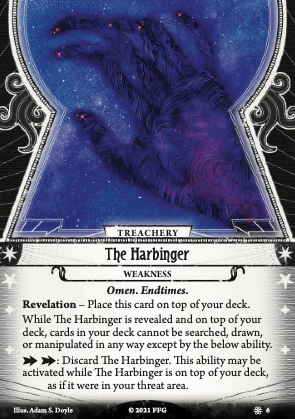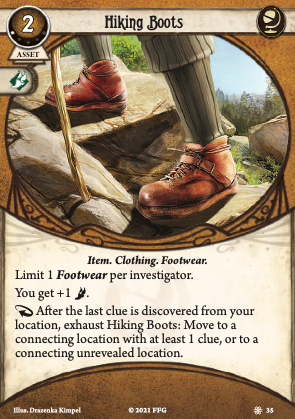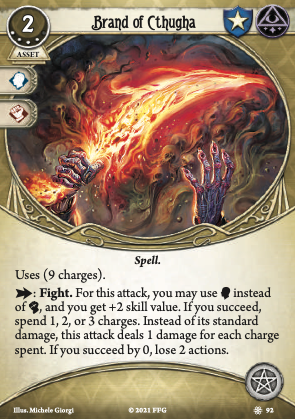
An enemy weakness with a Mateo twist. Looking at the two elements, the effect and the discard condition, we get:
The effect: It is a relatively weak, although mildly persistent enemy which also grabs the out of the chaos bag. If Mateo is going to fight them rather than endlessly evade, he has a few options, some better than others, with the 3 health of the Serpents being the significant factor. Shrivelling and Azure Flame will do the job reliably, but at the cost of 2 actions and 2 charges, which is steep. The 5 XP versions will do it at half the cost, but they are pricey solutions with their own dangers. As noted above, Spectral Razor is an excellent option. So is Radiant Smite, if you are leaning into (sadly, no Holy Spear for Mateo). Brand of Cthugha (4) is another option for a one action kill, with Brand of Cthugha (1) not terrible (about as effective as the "basic attack" spells in actions and charges). A friendly combat-oriented fellow investigator is, of course, the cheapest option, but not always available. The sealing effect is thematic, but not especially troublesome. Entire scenarios go by with no draws, after all, and anything that takes the token out of the bag (e.g. The Codex of Ages or Crystalline Elder Sign) denies the Serpents their due. The main effect is to make evade even less attractive as a solution, should the get sealed.
The discard condition: Kill them and be done. Like most enemies, any investigator can do the job.
All in all, this is a below average signature weakness (maybe average if it comes out early in solo), like most enemy weaknesses.



